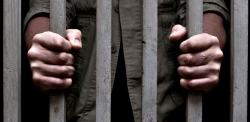Forced Recovery in Prison: How to Stay Clean After Release
People who have been arrested due to criminal activity that was drug-related may find that it is very difficult to stay clean. Prison does not allow for much access to drugs or alcohol, which makes the recovery that much easier but on the outside, drugs and alcohol are much easier to get ahold of, thus providing more of a temptation. However, there are many ways an ex-prisoner can maintain their recovery.
Substance Recovery Groups
When an addict is in the first stages of recovery outside of prison, it can help them to find a support group to help them adapt to their new surroundings. Groups like Alcoholics Anonymous, Narcotics Anonymous, and Celebrate Recovery can be especially useful.
Each of these holds a 12 (or 8 for Celebrate Recovery) step program that is designed to help the addict to maintain their recovery.
Seek Individual Counseling

It can be difficult to avoid temptation once released from prison.
The recovering ex-prisoner may benefit from a sponsor or individual counseling even after prison in order to get the help they need. A counselor will be able to help the individual to learn how to adjust to life on the outside, and teach him or her how to cope with the temptations that can arise.
So long as he or she practice these methods in their day-to-day activities, they should remain clean. For those moments of weakness where the addict may not know what to do, a sponsor may come in handy because they will be able to help him or her through the tough moment anytime, day or night.
Know What to Avoid
According to the NCBI, former inmates are exposed to an abundant amount of drugs, alcohol, and drug trafficking in their lives and those who were found to be homeless had it particularly hard to avoid them. When a former substance addict and ex-prisoner are released from prison, it can be hard to avoid the temptations that are brought forward.
Counseling is the first big step in the journey toward recovery and sponsors can help provide support along the way, but the ex-prisoner should also make the effort to avoid the triggers of their addiction. People, things, and situations that can trigger a relapse or bring back the addiction should be avoided in order to reduce the risk of losing their new life of recovery.
Support for their Recovery
It is important to make sure that the recovering addict has plenty of support from friends and family. When they are surrounded by loved ones who want to help them get better, it can boost their hopes of remaining sober and remind them that they are not alone in their journey. According to SAMHSA, the recovery process is supported by family members, who can become the champions of that recovery.
Readjusting to life after prison is hard enough, but when also recovering from an addiction it can become nearly impossible. There are a few options to help the process along, such as support groups, sponsors and counseling, being aware of what to avoid, and for the recovering addict to be supported by their loved ones in their time of need.
If you or a loved one is suffering from an addiction before, after, or during prison and needs help, call 800-487-1890 (Who Answers?) to speak with a caring specialist that can assist you.